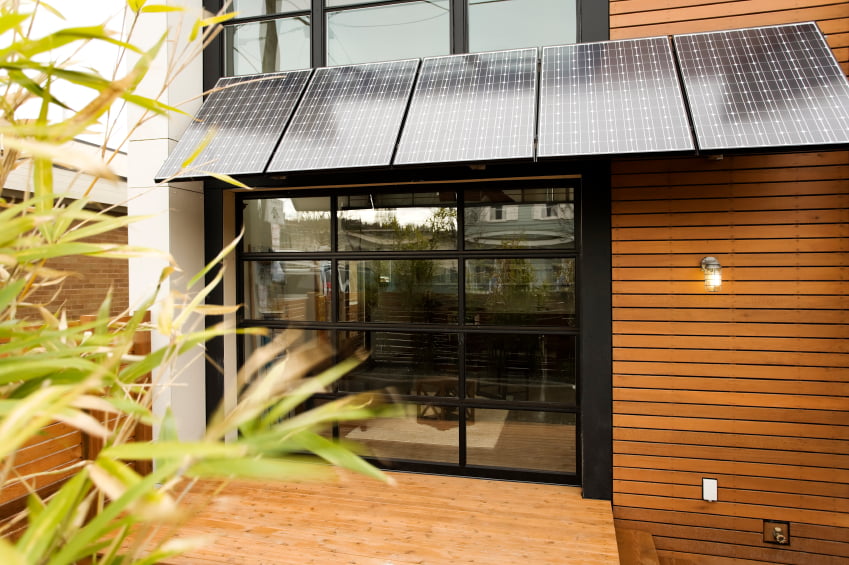If you care about the environment and are interested in saving money on your utility bills, then you should consider making your home more energy-efficient. Here are eight ways to make your home more energy-efficient that may force you to change some habits.
As home values go up in major cities across America, more and more homeowners are looking to make their homes as energy-efficient as possible. Not only does it help prevent utility bills from skyrocketing, but it also helps make your home more valuable if you decide to sell it. You can make many small changes around your house that will significantly reduce energy usage and lower costs long-term.
Use LED Light Bulbs
With LED bulbs lasting between 40,000 and 50,000 hours, compared to 750 to 2,000 hours for traditional incandescent light bulbs, they’re an excellent option for those looking to save on their electricity bill. Plus, an LED bulb can save you money in other ways—you won’t have to change it as often because of its long lifespan. And that means you might not even have to purchase a new bulb for years if you switch out your old one!
Add Insulation to Your Attic
Adding insulation to your attic is a great way to start saving energy. It’s very inexpensive, easy to do, and can have a large impact on reducing energy costs. The bigger and more well-insulated your home is, the more energy it will need to heat or cool properly. Adding extra insulation will help you reduce your costs over time. As of 2021, insulation needs to be R49 and not R19, which most attics have.
Keep Windows Closed on Hot Days
Opening windows on hot days lets in unnecessary air conditioning and increases your energy bills. If you need a bit of fresh air, open windows when it’s cool out. Also, ensure that window screens are in good condition to keep outside air from coming through cracks and crevices. If you don’t already have one, invest in a ceiling fan—they circulate warm air while they cool down your room!
Purchase Energy-efficient Appliances
When buying a new appliance, check out its energy efficiency rating. Many appliances on today’s market are highly energy-efficient and save you money in both your electric bill and carbon footprint. Plus, they can keep your house cooler during those summer months—which means you won’t have to use as much air conditioning or heating and therefore save even more money.
Seal Air Leaks With Caulk or Weather Stripping
One of the easiest ways to reduce your energy consumption at home is to caulk and weatherstrip your windows. It helps reduce air infiltration in and out of your home, helping you save on heating and cooling costs. It also reduces noise pollution. While some people might be able to do it themselves, most would benefit from professional installation for a lasting seal. A quick Internet search will let you know where such services are available in your area.
Set Your Water Heater Lower
If you live in a home where gas heaters or wood-burning stoves are used for primary heating, set your water heater temperature no higher than 120 degrees F. Of course, it can vary depending on how warm you keep your house. Even if you will be out of town and won’t be using hot water for a few days, turn down your water heater as much as possible. Water will stay hot longer at lower temperatures.
Invest in Home Automation
According to the Office of Energy Efficiency and Renewable Energy, up to 45 percent of all energy use in your home goes toward heating and cooling, so it’s no surprise that smart devices can help you achieve huge energy savings. Investing in home automation is eco-friendly. Using technology to automate simple tasks means fewer lights left on for hours at a time, less heat or AC running when not needed, and other savings opportunities. Buying products like motion sensors and smart outlets will get you started. And if retrofitting isn’t an option for you right now, don’t fret—many of these devices are built with remote connectivity in mind.
Use Natural Light When Possible
If you’re starting to feel a bit of cabin fever from a lack of natural light, grab your sun hat and hit up your local coffee shop. But don’t stop there—using natural light for work or home tasks as much as possible will decrease electricity use and save on power bills. The more you can keep electronics out of standby mode, too, the better.
The more energy-efficient a home is, generally speaking, the cheaper it will be to heat and cool. Any homeowner can take steps to make their homes greener, some of these changes may require an investment on your part, but in the long run, they could pay off significantly by helping you save money on utility bills in years to come.
Meta title: Green Living: 8 Energy-saving Tips for Your Home
meta desc: Are you looking for ways to make your home more energy-efficient? Anyone can achieve that with a few simple changes. Read on to learn more.

